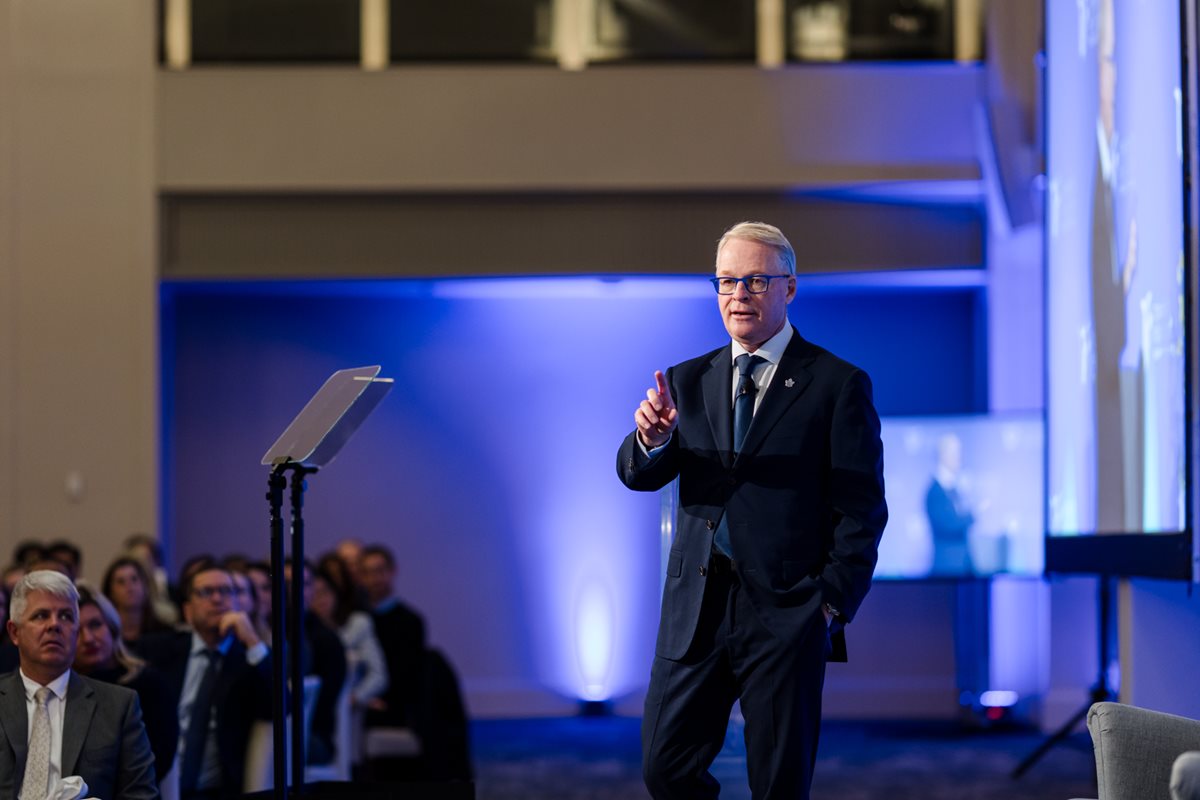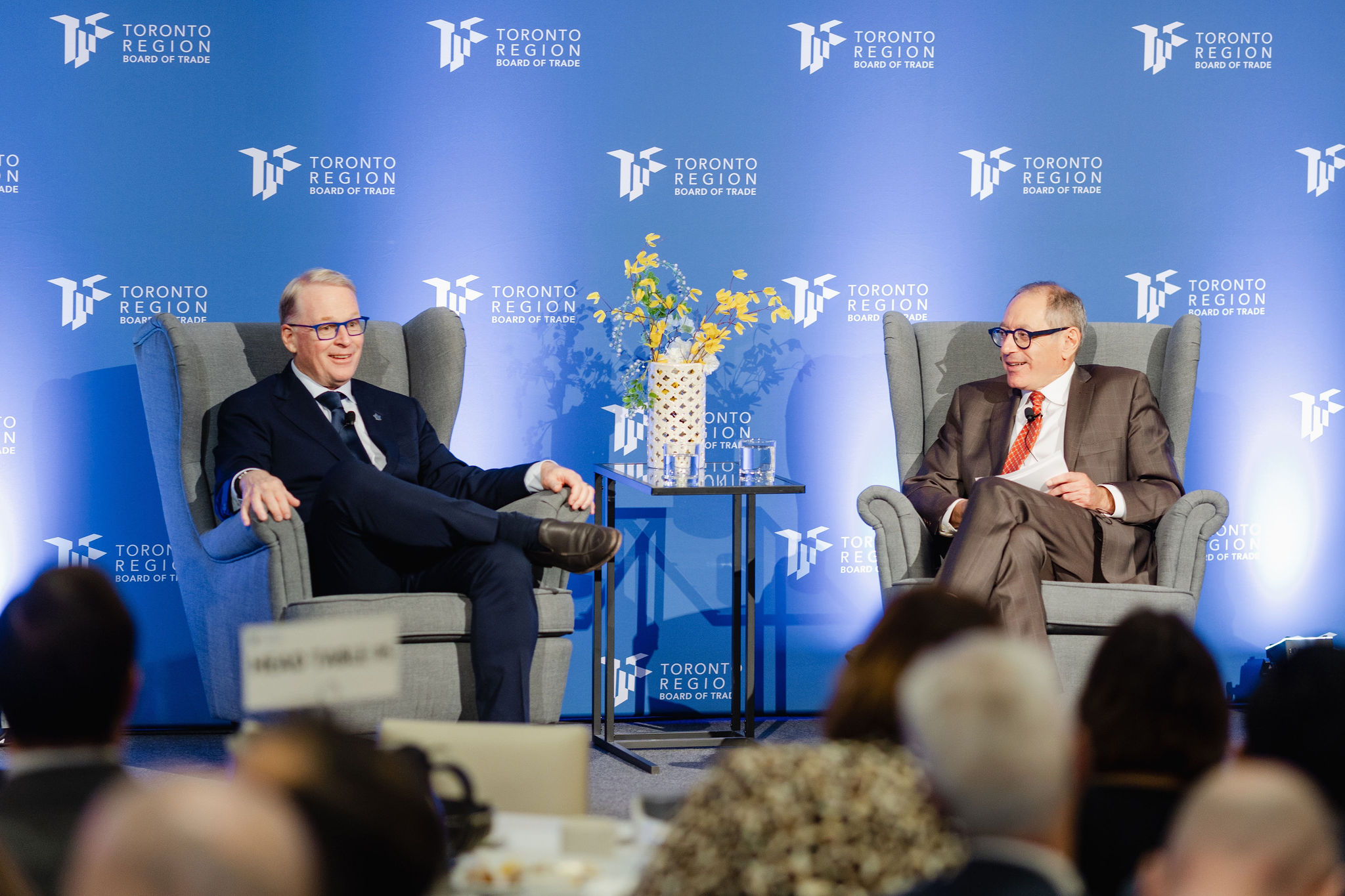Essential Insights
- Keith Pelley, President and CEO of MLSE highlighted how sports have the power to unite and transform communities.
- Pelley issued a challenge to Toronto's business community, emphasizing the need for business-driven solutions to tackle the city’s challenges ahead of the World Cup.
- MLSE's Fan Access Program aims to make sports more accessible, while businesses must take the lead in shaping the legacy of the event and restoring pride in Toronto.

Sports have a unique power to unite communities, inspire action, and transform cities. At our recent Gearing Up for Greatness: Toronto, MLSE, and World Cup 2026 event, Keith Pelley, President and CEO of Maple Leaf Sports & Entertainment (MLSE), underscored just how critical this power will be as Toronto prepares to host six World Cup games in 2026.
Pelley issued a bold challenge to Toronto’s business community: “We can't just wait for the government—we need to lean in.” He was clear that while the World Cup will bring an estimated $500 million economic impact to the city, this monumental opportunity will only be realized if the business community takes an active role in shaping the event’s success. The path forward for Toronto, Pelley stressed, is one that requires urgency, collaboration, and leadership.
At the heart of MLSE’s strategy is the desire to be more than just a sports powerhouse. Winning sports teams, as Pelley emphasized, have the power to transform communities by creating a lasting sense of pride, unity, and shared identity. Under Pelley's leadership, MLSE aims to become a community titan, pursuing championships while committing to positive change throughout Toronto.
As part of this commitment, MLSE will launch a Fan Access Program in January, offering 300 free tickets to every Leafs and Raptors game. This initiative is designed to make sports more accessible, particularly to those who have traditionally been excluded due to cost. “Only 2% of the city’s population get into Scotiabank Arena—we want to change that,” Pelley noted. The program will also feature open practices, arena tours, and dressing room visits, giving more Torontonians the opportunity to experience the magic of live sports.
Pelley didn't shy away from addressing a sentiment shared by a growing number of Torontonians: “It’s not the city it used to be.” He expressed his disappointment at how the city, once spoken of with admiration, is now seen in a different light both by its residents and on the global stage. For Pelley, this decline in perception is deeply concerning, especially as Toronto prepares to take the spotlight with the 2026 World Cup.
Rather than dwelling on the city’s challenges—aging infrastructure, a growing population, and frustrating congestion—Pelley issued a bold challenge to the business community to step up and lead the way forward:
“We can’t wait for government. We have to lean in. Cities that face challenges—like ours—rely on the business community to find solutions. These are real challenges. But let’s focus on solutions. Let’s talk about the opportunity right in front of us—the World Cup.”
With only 19 months left until the event, Pelley painted a vivid picture of what’s at stake. Drawing parallels to the Ryder Cup in Rome, which brought in €262 million ($380M in Canadian Dollars) over just three days, he emphasized the transformative potential of hosting six World Cup games in Toronto.
The World Cup, according to Pelley, represents a once-in-a-generation opportunity to change the narrative and restore Toronto’s image. “We have 603 days to get ready,” Pelley urged, “and that means we need action now. The business community has the power to influence, to lead, and to ensure that when the world is watching, we show them the best version of this city.”
When asked during a fireside chat with the Board’s President & CEO, Giles Gherson, about the legacy Toronto could build from hosting the World Cup, Pelley was optimistic but clear that it’s up to the city’s imagination. “The legacy can be whatever we want it to be,” he said, hinting at possibilities like growing youth soccer programs, building more accessible soccer pitches, and elevating the sport’s profile in a diverse, soccer-loving city like Toronto.

The challenge for the business community is to help shape this legacy, ensuring the World Cup leaves a lasting, positive impact on Toronto’s youth, economy, and global reputation. Pinball Clemons, one of Pelley’s longtime colleagues, summed it up best: “If you want to show someone true greatness, don’t talk about the car they drive—talk about the impact they have on others.” Pelley left the audience with a powerful message: “We’re counting on you, just like you’re counting on us.”



